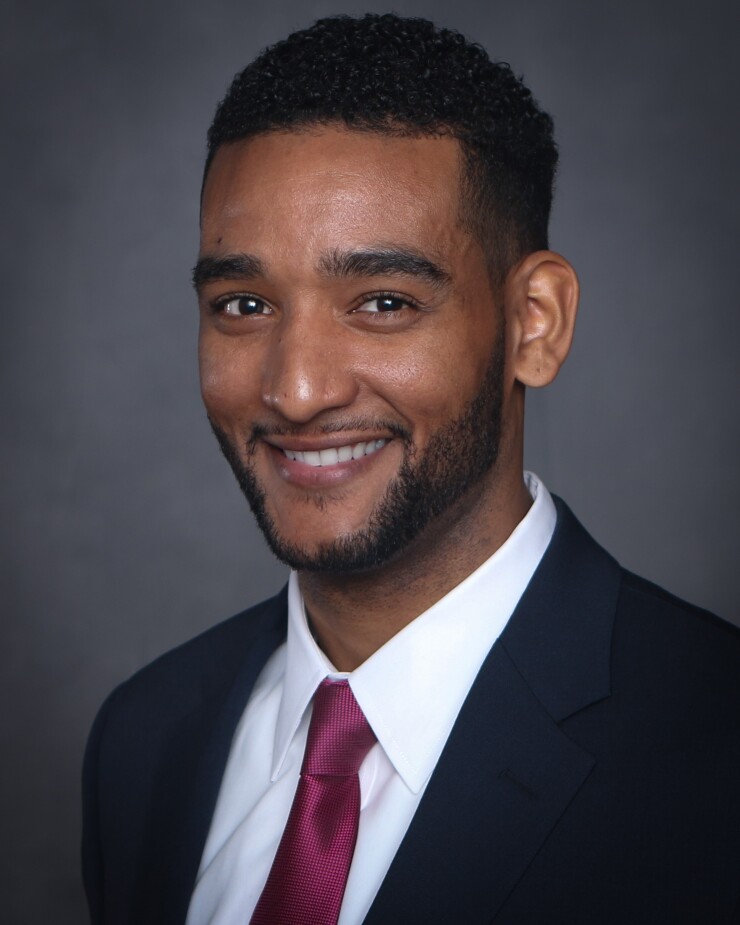A 33-year-old advisor “throwing the doors open” to nearly 2,000 aspiring financial planners is the winner of Financial Planning’s inaugural Visionary Leader Award.
The award recognizes professionals who have created exceptional, even startling, initiatives that have made an impact on the field of wealth management. This year, it honors, in particular, innovation in response to the coronavirus pandemic and associated economic strife. Nearly

When Hannah Moore, who heads next-gen programs at the FPA, realized the COVID-19 crisis caused companies around the country to cancel their in-person internships, she designed and marshaled a team to implement the association’s
Happily, she’s not the only innovator in the profession who mobilized rapidly in response to the crisis. Another is Alan Moore, cofounder of the XY Planning Network and no relation to Hannah, who was a strong contender. He and XYPN launched a virtual “internship-in-a-box” program with similar speed that, he says, has attracted 580 interns.
With 1,950 students enrolled, the FPA’s initiative has achieved even broader critical mass with its razor-sharp focus on attracting students who are underrepresented in the field.
“I have no doubt that these students are going to change this profession and change this world,” Moore says. “We are throwing the doors of financial planning open.”
Moore and her collaborators convinced planners — 34 so far, and counting — from a kaleidoscope of demographic backgrounds and planning business models to jump in last minute to teach the eight-week program, running June 1-July 24. She then convinced TD Ameritrade Institutional, eMoney and Morningstar, to participate. TD provided financial support, access to its online advisor Education Center and its professional staff. Much of the program runs on eMoney’s platform and the company’s in-house planning team is helping to teach students. Morningstar gave students access to train on its software. For students who complete the program, the CFP Board agreed to grant students 160 hours toward its certification.

“When I first heard about 160 hours of experience along with this externship, I actually thought it was a typo,” says Chris Woods, host of the FPA’s new African American Knowledge Circle and one of the program’s lecturers. “To be able to get 160 hours is just remarkable.”
Single women, people with disabilities, some identifying as LGBTQ, Black, Hispanic, Pacific Islander and others comprise the first class.
“I immediately jumped on the opportunity,” says Jennifer Mawson, a single disabled mother in Phoenix, Arizona, who struggled to find the right planning support for her unique finances. Now a masters student in financial therapy, financial counseling and applied financial planning at Kansas State University, Mawson says her mission is to provide others with the kind of help she needs.
“Hannah and the community have been so supportive,” says Mawson, who is 42. “I was very nervous about jumping into this so early on, but I am beyond happy I did.”
Wander Cedano, 32, a CPA and veteran of Ernst & Young who is now an auditor in financial services in the Boston area, emailed the FPA to say he’d been wanting to make a career change, but wasn’t sure how until he saw the program.

"The lack of diversity of financial planning professionals in Boston had me hesitating,” wrote Cedano, who was born in the Dominican Republic, grew up in Massachusetts and already has passed his CFP examination. “I appreciate your goal to bring financial planning to those who have been traditionally priced out."
Taynia Vakapuna, who works as a paraplanner for hybrid RIA Everspire in Midvale, Utah, calls the program “a priceless opportunity.”
“It’s a personal desire of mine to figure out how to work in the underserved communities,” says Vakapuna, 32, a Pacific Islander whose father is Samoan and mother is Tongan. “I also really appreciate the age variety and the gender variety and the racial variety of the planners [who are lecturers].”
In Schio, Italy, where she plays professional basketball, Jillian Harmon, 33, an American from Portland, Oregon, who represented New Zealand in the 2008 Olympics, says she decided to become a financial planner two months ago.

One roadblock, however, was the prospect of building a book of business from among her family members, as she imagines would be required if she worked for a large firm, she says.
The internship “is a huge opportunity because, for me personally, I don’t have the time and not really the interest to go through one of those programs where I’d be responsible for calling every person I know and try to get them on as clients,” she says.
Instead, Harmon wants to offer planning for expat Americans athletes who have challenging tax situations like hers. Once she earns her CFP designation, she says she expects she will live anywhere in the world that she chooses and work remotely.
“This externship gives me the chance to get that [work] experience while I’m learning,” she says. “It’s amazing really.”
Moore says it’s hard for her to fully grasp the myriad implications of the program, especially as it continues in future years.
While students are learning how they can impact their clients’ lives, Moore says, “they are seeing the impact that financial planning could have on our society, as well.
“This program is so much bigger than financial planning,” she says. “Financial planning doesn’t just change families, it transforms generations. It gives hope.”






